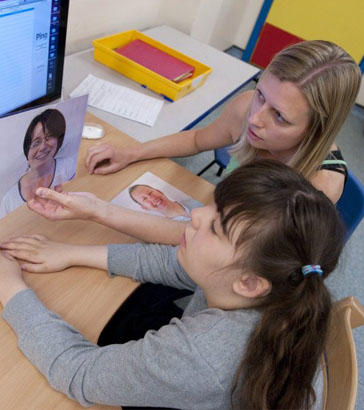
Research questions may arise from any of the following:
- Classroom practice.
- A query from a parent.
- The school development plan.
- An issue raised by research, a report, or a new or proposed government policy.

Brainstorm the professional questions which play on your mind – whether they are to do with your own practice, the
children you teach, managing the classroom or wider school issues.
Pick out the question which is most important to you. Now list all the information that you collect or could collect in your
classroom which could provide evidence to answer this question (eg behaviour charts, assessments, etc).
What changes could you make to the way you collect this information to make it more useful to your inquiry?

Write your chosen question in the middle of a large sheet of paper and then around it note all your related ideas. Add
questions and comments, draw lines between matters that seem to be related. When you have done this once, you may wish to
re-draw the diagram in a more organised version, but keep the first one.
Share this with a mentor or colleague. Do they have any suggestions?
Look at your diagram, think about turning it into a research project and list the queries that arise.
Click here for some queries you might have included.
Did you include any of the following comments?
- I don't know a way we could find that out.
- Don't we already know what to do?
- That would take too long.
- Hasn't somebody done this already?
- Didn't I see a TV programme about this?
Return

Choosing a question that interests you is just the start – it will have to be turned into a usable research question.
Research questions need to be constructed with care. A question with limited scope that is answered decisively gives a more
secure base for further work than a grander question not answered through lack of time or resources.

Be realistic about the amount of time and work involved. For example, you can make your research more manageable by:
- Concentrating on one aspect of what you are interested in;
- Focusing on a select number of people instead of a whole group;
- Being specific about the type of information you are collecting (eg parent perceptions);
- Narrowing the scope (eg collecting information in one or two lessons at a specific time each week, instead of every lesson); consistently focusing on one part of the lesson.
Once you have drafted your research question, share and discuss it with an experienced researcher. They may be able to suggest possible improvements.

Now that you have a draft research question, it is important to clarify your thinking about it. This inquiry planning sheet will allow you to set your research question in the context of your professional practice.
This is the point to start focused reading about your topic and to talk with other colleagues who have expertise in research and/or in your research topic. You will find advice on reading in a later section.

Now that you have your draft question, ideas about related questions, and knowledge of previous research from the literature,
it is time to finalise the research question.
The finalised research question needs to be:
- Achievable within the resources (time and people are usually significant limiting factors);
- Likely to give a result that is useful;
- Relevant;
- Worth doing.

One way of reviewing research questions is to ask 'If we had the answer to this question what would it look like?' or,
put the other way round, 'what kind of answer do we need?'.
If you want answers like, This child engaged more when we intervened thus, then you need to ask a question such as
'What happens when we intervene thus?' . If you expect answers like '75% of parents said' then you have probably
need to ask a question which begins 'What proportion...?'
Examine these question signifiers:
What?
Why?
How?
How Many?
What Proportion?
When?
How often?
What happens when?
Decide which of them do the best work for your inquiry.